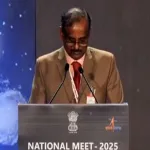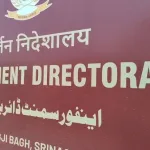As we stand on the brink of the future, our understanding of education continues to evolve. The traditional model of rote memorization and regurgitation – a relic from the industrial revolution – is increasingly becoming anachronistic in a world that’s rapidly digitalizing and globalizing. In this ever-evolving landscape, it’s clear that we need to shift our focus from information accumulation to meaningful learning. Meaningful learning, as opposed to rote learning, emphasizes comprehension over memorization. It promotes the understanding of why things are the way they are, and how concepts interconnect, rather than just memorizing facts or formulas. This approach to learning allows students to apply the knowledge they gain in meaningful, practical, and novel ways. In a world where information is readily available at the click of a button, the ability to recall facts and figures is losing its value. It’s no longer about what you know, but what you can do with what you know. The importance of skills like critical thinking, problem-solving, and creativity cannot be overstated in the 21st century. These are the capabilities that meaningful learning fosters. The benefits of meaningful learning extend beyond academics. When students comprehend the relevance and significance of what they are learning, their motivation to learn increases. This engagement with the learning process leads to a deeper understanding, better retention, and an enhanced ability to transfer skills and knowledge to different contexts – the true hallmark of learning. Meaningful learning also fosters a growth mindset, the belief that abilities can be developed through dedication and hard work. This mindset creates resilience in the face of challenges and a love for learning, traits that are crucial for success in life. To make learning meaningful, we need to reevaluate our teaching practices. Education needs to be student-centric, where learning is active and interactive. Teachers should facilitate and guide students as they explore, question, and discover. Real-world applications of theoretical knowledge should be emphasized, making learning relevant and interesting. Moreover, assessments should be redesigned to evaluate understanding, application, and critical thinking, instead of just recall. After all, the real test of learning is not in the ability to repeat information but in the capacity to use that information meaningfully. As we prepare our children to face the future, we must equip them not just with knowledge, but with the ability to make sense of information, to connect the dots, and to create new solutions. The world is changing, and so must our approach to education. Embracing meaningful learning is not just a pedagogical choice; it’s a necessity for our times.





